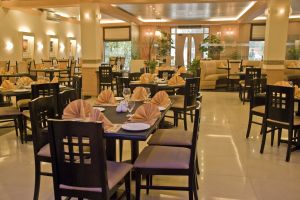I often get asked when talking about restaurants what has changed the most in my time as a server. I have always had a hard time answering that question. In part, it is because my vantage point on the industry has changed over the years. The differences between my current job and my first serving job are too numerous to count, but that can be attributed to career advancement. It is also difficult to determine gradual changes because they happen so subtly that you hardly notice them occurring around you.
Of course there are the big changes. Large corporate chains are proliferating at a far greater rate than independent restaurants. These chains use the power of their size to procure food at a lower price than independent restaurants could ever dream of. The consumer has more options of where to dine and this competition forces restaurants to fight for their business. Many of these restaurants employ so many servers that it is difficult for any of them to make a good wage. The customer is more educated due to the internet and the never ending stream of cooking shows. They also have more avenues to express their dissatisfaction in a way that does not give owners a chance to respond and can have a devastating impact on the restaurants business.
None of these are the change that concerns me the most. All of them are causes of or caused by what I feel is the greater issue facing restaurants today. It is not a tangible change and there is no way to accurately measure the effect.  I would argue that it is a hidden tax added to the price of every meal you eat in a restaurant. It is also a tax caused by the guests themselves. It won’t appear on your bill, but it is factored into every price on the menu.
To many diners the price on the menu represents the price of perfection. The price is a starting point agreed upon at the beginning of the meal. Any minor problem results in a reason to negotiate for a lower price. Whether the food takes too long, is not that they expected, or they simply don’t like it, compensation is owed. This may come in the form of remaking the dish, making another dish, offering a gift certificate, buying a free dessert, or taking it off the bill. A guest who decides they don’t like a dish now feels they are entitled to something in exchange.
Restaurants truly want their guests to be happy. Sometimes mistakes occur that are outside their control. Your reservation might not be on time because the previous guests would not leave the table. The kitchen might be running slower than normal because the restaurant was not anticipating business levels being as high as they are. A server might have called in sick and left the restaurant understaffed. In years past, these were considered unfortunate, but uncontrollable. In the past, these problems were generally forgiven unless they ruined the diner’s evening. Now these problems are forgiven only if the guest is compensated. Failing to do so is reason for the evening to be ruined. Waiting an extra 10 minutes for a table, and only receiving several apologies, is reason for it to be table conversation throughout the meal.Â
Most guests do not expect something for free at the slightest mistake. These are the guests that are penalized the most by the guests that do. I have written before that the cost of food generally represents between 25-30% of the cost of a meal. After all other costs are taken into account, the profit margin for the restaurant is less than 10% and usually closer to 5%. This means that if a restaurant cooks an additional meal to pay for the one you did not like, they will have to sell 3-6 additional meals just to replace the one that was thrown away. When a guest says, “I didn’t know the salad came with the dressing on it. Can you make me another without it?†it is the financial equivalent of throwing away the next 3-6 salads that are ordered.Â
In many cases the restaurant is paying for the opportunity to feed these guests. If you look around a dining room on a Saturday night at see a manager being berated by a guest, it is a fair assumption that the restaurant is losing money on that table. This is not including the cost of coupons and other types of discounts. The restaurant generally doesn’t make any money if you bring in a coupon and do not drink. They are hoping that by luring someone in with a coupon that they will make a guest want to return at full price. With the proliferation of discount sites, more often than not the coupon yielding guest will simply go to the place with the best deal on their next visit.
Restaurants must turn a profit to stay in business. This loss of profits on these tables is part of the reason why food costs are as high as they are. Only food that remains on the check is factored into offsetting the amount they spent on inventory. Food that is not paid for by another table is factored into the cost of your meal. The price of free food, desserts, gift certificates, etc are paid for on the bill of every guest at every restaurant. This is why the markup on alcohol, soft drinks, and other extraneous items is so high. Sales of these items are often the only things keeping a restaurant profitable.
Near the beginning of my serving career, I worked for a chef that owned his restaurant with his wife. On the rare occasion that the kitchen got backed up or ran out of a particular entrée, he would send his wife out to explain. She would explain the reasons for the issue and thank the guest for their patience. I am not sure I ever heard her apologize. She accepted that we are all human and all make mistakes. She asked the guests to do the same. I once heard a guest shout at her, “we shouldn’t have to pay for this and we are never coming back.â€Â She simply smiled and said, “I’m sorry you feel that way.â€
She understood something that has been forgotten in too many restaurants. Someone has to pay for the food. If the restaurant gave the guest what they ordered, then the guest should pay for it. It was not fair that she had to pay for their meal or that she should charge the table next to them. She knew they served a good meal at a fair price. She knew that she couldn’t make everyone happy, but if she kept serving a good meal at a fair price that she would always keep the dining room full. She always did.



